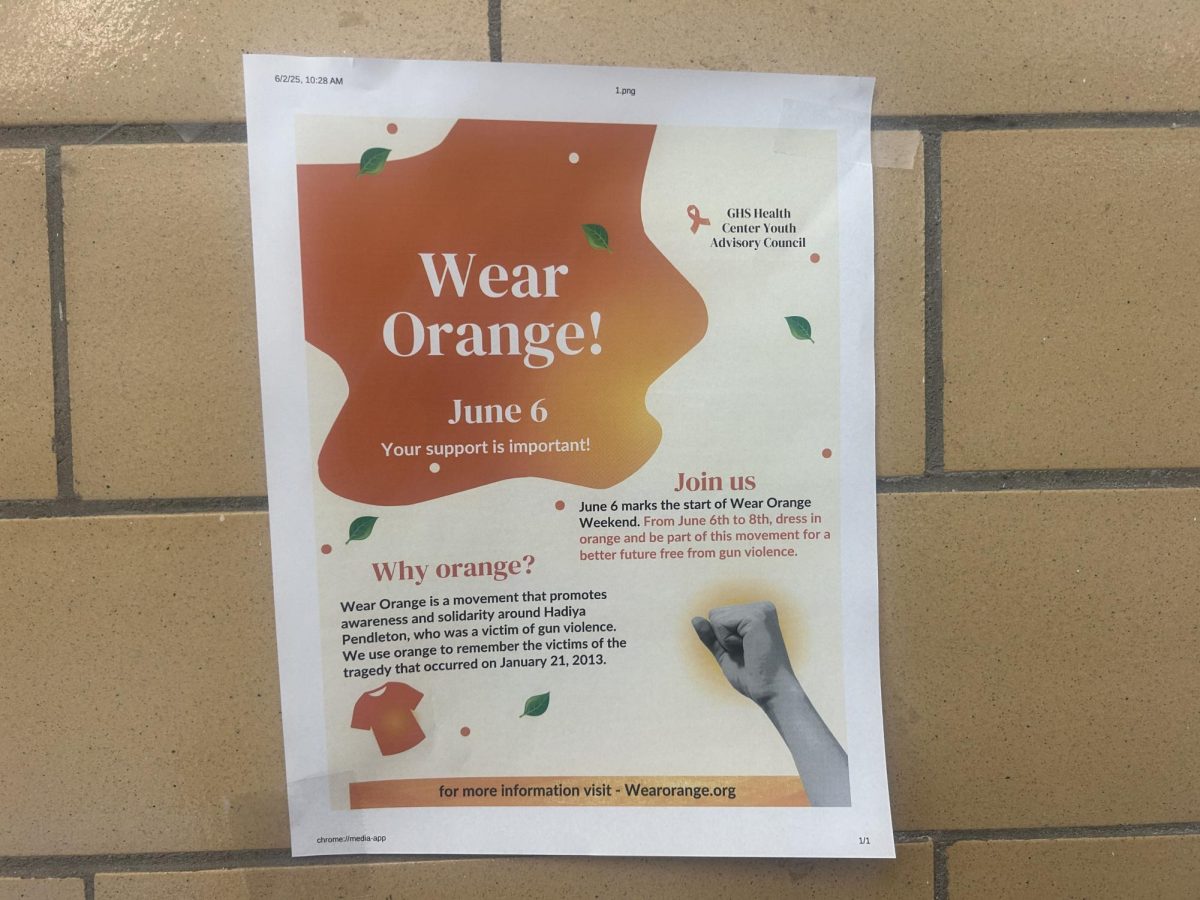I gave up my phone for a month, and you can too
December 15, 2017
In a world full of technology and gadgets, it is not easy to give up your cell phone for a long period of time. Most people probably would not physically be able to give up their phones because the world is slowly but surely becoming addicted to these hand-held devices.
According to Huffington Post, 84 percent of people said they would not be able to give up their phones. So over the course of a month, I went without carrying my phone constantly. The first few days were hard because I tended to reach for it, even though I knew it was not in my pocket.
By the end of the first week, I stopped reaching for my phone and realized there is so much we are missing by constantly being plugged in.
Older generations are also becoming attached to their phones, not just millennials. Webmd.com states that twice as many children own a phone now than in 2004.
By putting my phone down, I have realized almost everyone is constantly on their phone. These people include teachers, younger siblings, and yes, even my own parents.
According to a Pew research study, 92 percent of adults in the United States own some type of cell phone. With this growing usage rate comes many challenges people have to face.
Technology becomes a much bigger problem when it is putting the safety of yourself and others in jeopardy. I have seen so many people, teens and adults included, who text or talk on their phones while driving.
“The week after I got my license, I was driving home from an early morning practice and my phone went off,” said Caroline Enos. ” I was so used to answering my phone that without a thought, I picked it up and looked at, not even thinking about what I was doing. Thankfully, I realized what I was doing and threw it back on the seat a few seconds later, but that just goes to show how plugged in we are to our phones.”
I have also seen people crossing the street without paying attention to where they are going, almost getting hit by a car. Why? Because they are only paying attention to the virtual world, not the real one.
DMV.org states that on average, nine people are killed every day due to someone texting and driving. So if responding to your phone is that important, pull over first.
Another downfall to these handheld devices is an uprising of isolation among people who are on their phones a lot. This usage has led to lack of social interactions among peers.
According to Theatlantic.com, from 2000 to 2015 the number of people who hang out with their friends nearly every day has decreased by more than forty percent due to technology taking over.
“Technology is also destroying our social skills,” wrote Carly Curcuru in a past Gillnetter article. “Social media claims to connect us, but in reality, it’s just creating disconnect. When was the last time you went out with a friend and they didn’t spend the entire time obsessively checking their phone?”
Over the past month, I can’t tell you how many times I was in mid-conversation with someone who told me to pause because they had to check their phone or completely ignored me altogether just because they were distracted by their technology, not paying attention to the words coming out of my mouth.
Our world is so adjusted to technology that nobody does a double take when they see someone using their phone. It is socially acceptable to be on your phone rather than to engage in real life conversations, and that leaves you missing out on a lot.
There was one big downside to limiting my technology habits.
There were many instances where I needed my phone to contact someone for homework or a ride, but I did not have it on me. It is much more difficult to get a hold of someone without a piece of technology at your fingertips, since it only takes a few seconds to send a simple text.
Take back your life from too much technology
Without a doubt, technology is slowly but surely taking over our everyday lives, but there are many actions you can take to reduce usage and stress.
Here are a few tips you can use to help limit your technology usage:
- Get a good night’s sleep
Make sure to put your electronics down at a half an hour before you go to bed to help have an uninterrupted sleep. Your phone will definitely interfere with your sleeping patterns if your notification sounds keep going off. Staring at a screen before you sleep also keeps your brain extremely active when it needs to be calming down.
- Be productive with your technology-free time
Do something nice for someone else. Go for a walk with your dog. Go on an adventure with a friend. Volunteer within your community. If you keep yourself busy without technology, you will be able to see how beautiful the world truly is.
- Have real conversations with people
Even if it is a quick “hello” or a long, heartfelt talk with your favorite person, talk to the people around you. Say thank you to the person who held the door open for you and let the people in your life know how thankful you are to have them.
- Set aside some “me time”
Even if you don’t think you can live without technology, reserve thirty minutes or even an hour out of the day for just yourself. Do something like read your favorite book, draw, or even take up a hobby you’ve been meaning to get into. Create a fun DIY project to do with your time. You’ll be surprised by how those thirty minutes will progressively turn into hours of time for yourself without electronic distractions.
- Start journaling
You might not have your phone on you at all times to capture a picture of something cool you see or to add a list into your notes. Having a journal allows you to be in the moment while it is happening and able to take note of it. It is also handy to carry a journal if you are very forgetful, like myself, to jot down whatever is important and needs to be written for safe keeping.
Reducing your use of technology may be difficult at first, but being able to see the world through an uninterrupted lense is definitely worth it.































Linda • Dec 16, 2017 at 8:19 am
Thank you for writing this article! I made a lot of good points and I hope lots of people read it.